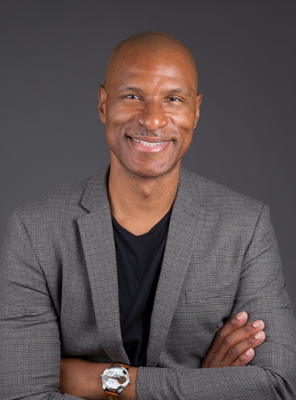Principal Investigator and Project Lead
 Dr. Philip Howard
Dr. Philip Howard
Dr. Philip Howard is an Assistant Professor in the Department of Integrated Studies in Education, Faculty of Education at McGill University. His research interests are in the social formations, pedagogical processes, and epistemological frames that mediate the ways we come to know ourselves, create community, and exercise agency for social and racial justice.
Racial Humour in the Post-Racial
Racial Humour in the Post-Racial, funded by the Social Sciences and Humanities Research Council (SSHRC) explores blackface incidents on Canadian university campuses. The main objectives of this research are to:
- explore how claims to humour function rhetorically to allow particular forms of racial knowing and not knowing;
- to understand how the colonial tropes of racism on which these acts seem to draw are or are not, learned, recognized, and forgotten; and
- explore how black communities on university campuses understand these acts, and exercise agency in challenging them.
The Africentric Alternative School Experience: Agency and Action
The Africentric Alternative School Experience: Agency and Action, funded by the York Centre for Education and Community and the Toronto District School Board, explores teacher, student, and parent/community experiences at this innovative school. Its objectives were to understand the aspirations of parents, staff, and students for the Africentric Alternative School, to understand the ways in which they are shaping the school in relation to these aspirations, and to identify areas in which students, staff and parents require further support to sustain this project.
Arts Against PostRacialism Project (AAPR)
The Arts Against PostRacialism Project (AAPR) uses arts-based methods to engage audiences with Professor Howard’s research into contemporary Canadian blackface.
The objectives are to:
- raise awareness about blackface, its history and its impacts at Canadian universities and beyond,
- offer Black students and others impacted by blackface a space to heal and to develop strategic responses, and
- to combat isolation by fostering connections between Black student associations across Canadian universities.
Professor Howard serves on the editorial board with the journal Whiteness and Education, and is a Consulting Editor with the Canadian Journal of Education. Among his publications, Professor Howard has authored the following articles related to the Arts Against Postracialism project: “Drawing Dissent: Post-Racialist Pedagogy, Racist Literacy, and Racial Plagiarism in Anti-Obama Political Cartoons” (Review of Education, Pedagogy, and Cultural Studies, 36(5)) and “On the back of Blackness: Contemporary Canadian blackface and the consumptive production of post-racialist, white Canadian subjects” (Social Identities: Journal for the Study of Race, Nation and Culture).
“Hide and See: Engaging the in/visible presence of blackface in Canada”
Keynote Presentation
Professor Philip S.S. Howard
This keynote presentation will contemplate contemporary Canadian blackface (CCB) incidents on Canadian university campuses and beyond, and their meanings. It will elaborate a theoretical framework that understands anti-black racism as both foundational to the Canadian settler state, and endemic to Canadian university campuses. Then, drawing on data from a SSHRC-funded study of contemporary Canadian blackface, the presentation will argue that the particular features of contemporary Canadian blackface draw on and instantiate the quite specific mainstream tropes through which blackness is understood in the Canadian settler-colonial context, while always posing as a new, exceptional, and startling phenomenon. How, then, might contemporary Canadian blackface best be challenged in the contexts from which it is a logical outgrowth, and in which it is so at-home? In response, the presentation concludes by exploring the promise of the Afrofuturist imagination in meeting this challenge.
- October 23, 5:30-6:30pm, McGill University
- October 25, 5:30-6:30pm, Queen's University
- October 27, 6-7pm, Wilfrid Laurier University
- October 30, 6:30-7:30 pm, Ontario College of Arts and Design University

